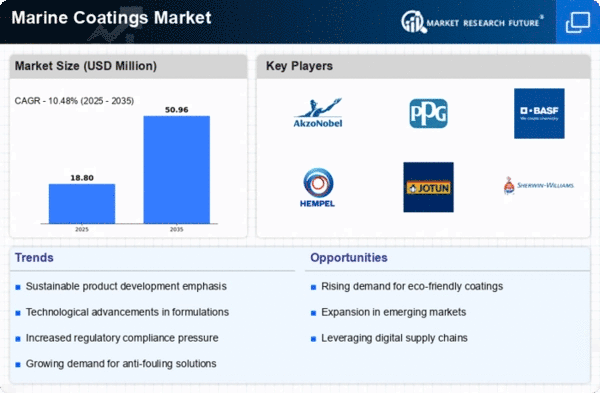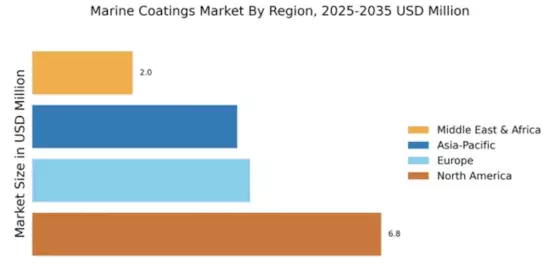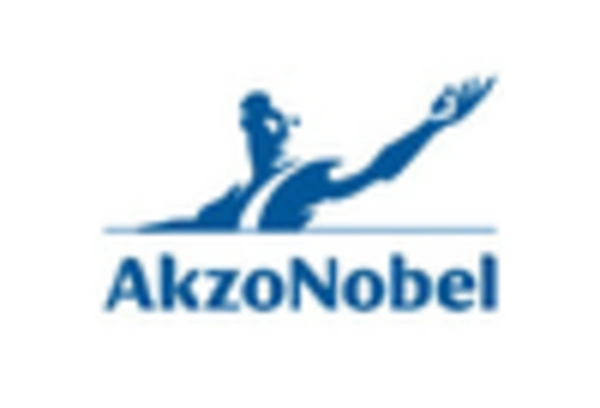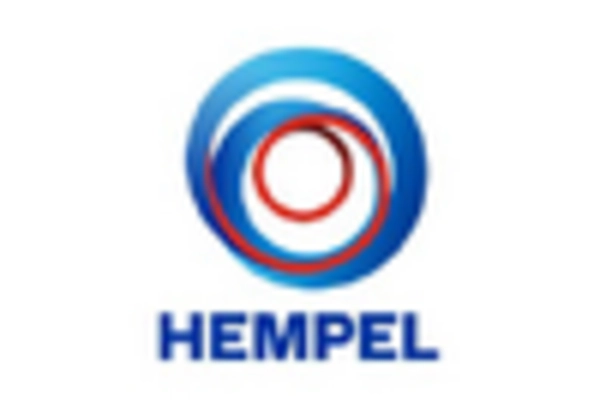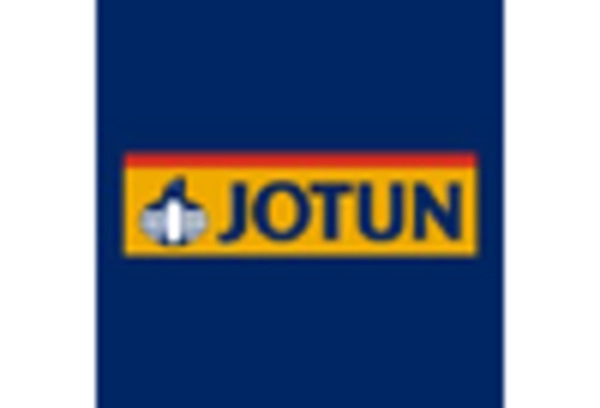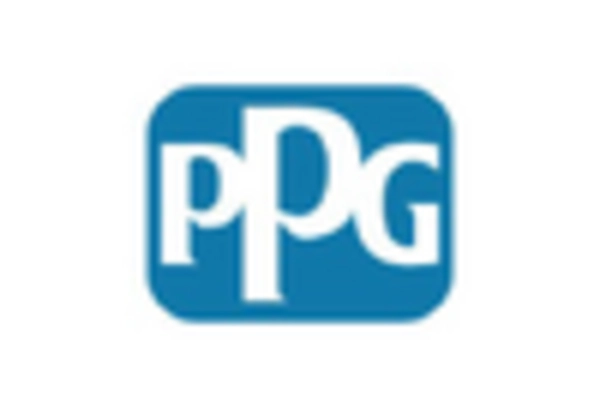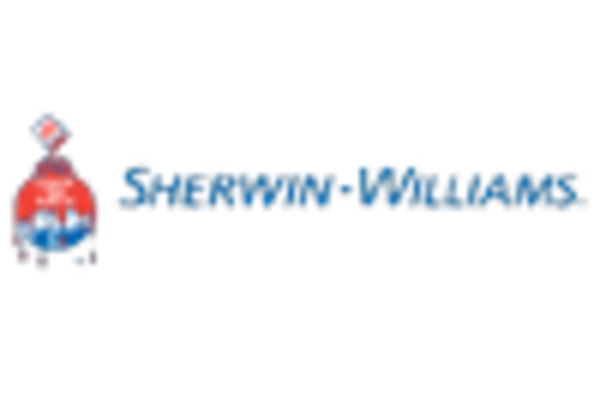Growth in Maritime Trade
The Global Marine Coatings Market Industry benefits significantly from the growth in maritime trade and shipping activities. As global trade continues to expand, the demand for new vessels and the maintenance of existing fleets increases. This trend is particularly evident in emerging economies where shipping infrastructure is rapidly developing. The rising number of commercial vessels necessitates the use of high-performance marine coatings to protect against harsh marine environments. Consequently, the market is anticipated to reach 7.88 USD Billion by 2035, driven by the continuous need for effective protective coatings in the maritime sector.
Market Growth Projections
The Global Marine Coatings Market Industry is projected to experience substantial growth over the next decade. With an anticipated market value of 4.52 USD Billion in 2024 and a forecasted increase to 7.88 USD Billion by 2035, the industry is poised for a compound annual growth rate of 5.18% from 2025 to 2035. This growth trajectory reflects the increasing demand for advanced marine coatings driven by factors such as technological advancements, sustainability initiatives, and the expansion of maritime trade. The market's evolution is indicative of broader trends in the marine sector, highlighting the importance of innovation and compliance.
Sustainable Coating Solutions
The Global Marine Coatings Market Industry is increasingly driven by the demand for sustainable and eco-friendly coating solutions. Regulatory bodies worldwide are imposing stricter environmental regulations, prompting manufacturers to innovate and develop coatings that minimize environmental impact. For instance, the introduction of water-based coatings and low-VOC formulations aligns with these regulations. This shift not only meets compliance but also appeals to environmentally conscious consumers. As a result, the market is projected to reach 4.52 USD Billion in 2024, reflecting a growing preference for sustainable products in marine applications.
Technological Advancements in Coatings
Technological advancements play a pivotal role in shaping the Global Marine Coatings Market Industry. Innovations such as nanotechnology and advanced polymer formulations enhance the performance and durability of marine coatings. These technologies improve resistance to corrosion, UV degradation, and fouling, thereby extending the lifespan of marine vessels. For example, the development of self-cleaning coatings reduces maintenance costs and downtime for ship operators. As these technologies become more prevalent, they are expected to contribute to a compound annual growth rate of 5.18% from 2025 to 2035, indicating a robust growth trajectory for the industry.
Increasing Recreational Boating Activities
The Global Marine Coatings Market Industry is also influenced by the rising popularity of recreational boating activities. As more individuals engage in boating for leisure, the demand for high-quality marine coatings that enhance aesthetics and protect against environmental factors grows. This trend is particularly pronounced in regions with favorable climates and extensive waterways. Manufacturers are responding by developing coatings that not only provide protection but also improve the visual appeal of vessels. This surge in recreational boating is expected to further bolster the market, contributing to its overall growth in the coming years.
Regulatory Compliance and Safety Standards
Regulatory compliance and safety standards are crucial drivers in the Global Marine Coatings Market Industry. Governments and international organizations are establishing stringent safety and environmental regulations that coatings must adhere to. This compliance is essential for manufacturers aiming to operate in the marine sector. As a result, companies are investing in research and development to create coatings that meet these evolving standards. The focus on safety and compliance not only enhances product credibility but also drives innovation within the industry, ensuring that marine coatings remain effective and reliable in various applications.


